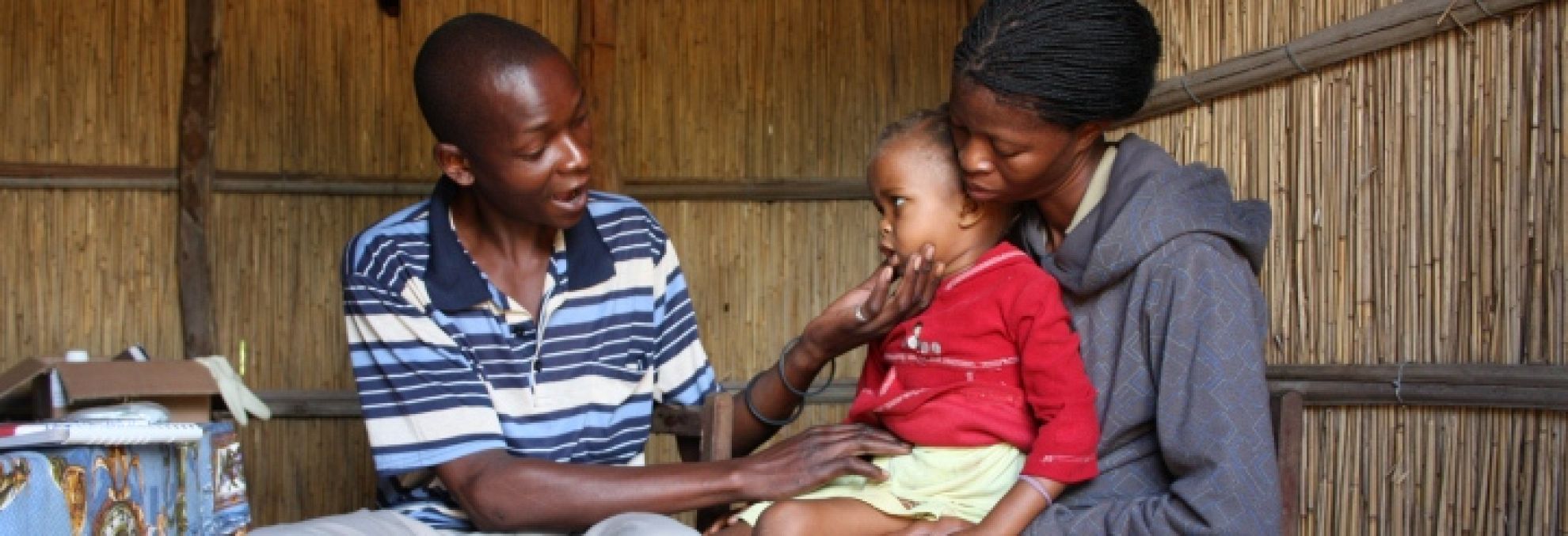
Malaria Consortium calls for urgent and sustained scale-up of ICCM to meet MDGs
30 May 2013Malaria Consortium calls for a greater level of investment for the sustainability of integrated community case management (ICCM), at an event held in London today to share learning from a large-scale ICCM programme run in four African countries.
Malaria Consortium has been implementing ICCM projects in Mozambique, South Sudan, Uganda and Zambia since 2009, aimed at improving diagnosis and treatment at community level for pneumonia, diarrhoea and malaria. Over 14,000 community health workers have been trained, providing close to three million treatments for over 2.4 million cases.
The event highlighted the need to ensure continued investment for ICCM, presenting evidence and impact of ICCM programmes so far in improving access to diagnosis and treatment for children under five.
Speaking at the event, Malaria Consortium’s Africa Technical Director Dr James Tibenderana said: “ICCM contributes to a global quality of care, this has been demonstrated today. But without sustained coverage we can’t achieve the MDGs, specifically MDG 4. We need to bring the various channels closer together so that the public and the private sector complement each other to sustain health benefits. ICCM is fragile but it is feasible and acceptable. The models to implement exist but we now need to improve these models and make them more cost effective and more applicable to different contexts.
“Community health workers are addressing a need and would like to be part of the solution,” he added. “This what the public health community has been looking for – a process from which the bottom can get to the top and demand both for services and that their rights are met. ICCM provides this platform.”
Malaria Consortium has been working in partnership with Ministries of Health to implement ICCM in a number of countries through the training of community health workers to diagnose and treat these common childhood killers, thereby reducing the loss of life due to problems of access to appropriately equipped health facilities.
Dr Henry Katamba from the Uganda Ministry of Health gave an overview of lessons learned following three years of ICCM implementation in 17 districts of Mid-western and Central Uganda: “There is a real need for investment in training and close monitoring of VHTs. This is the level of investment needed for sustainability, but it is a challenge for Uganda in terms of capacity building. Sustainability is dependent upon investment in order to capacity build. Without this, the gains we have achieved are at risk of being lost.”
Also speaking about an evidence review were ICCM experts from UNICEF and the London School of Hygiene and Tropical Medicine. The event covered topics such as improving access to, quality of and demand for ICCM services, improving community health worker quality of care, innovations and research priorities for improved quality and reach.
The presentations are available to view/download here.
Malaria Consortium’s work in ICCM is funded by the Canadian International Development Agency, the Bill & Melinda Gates Foundation, the World Health Organisation (WHO), UNICEF and the UK Department for International Development (UKaid).
For more information, contact [email protected].
Latest news
- Malaria Consortium honoured by Ugandan government for contribution to combat malaria23rd April 2024
- International summit calls for AMR accountability in public health interventions21st March 2024
- Global SMC community celebrates new milestone at SMC Alliance Annual Meeting in Nigeria6th March 2024
- Scaling up key interventions could halve pneumonia-related childhood mortality13th February 2024
- Malaria Consortium and eGov Foundation join Mozambique’s national malaria programme to digitalise seasonal malaria chemoprevention campaigns8th February 2024
- World’s first malaria vaccine rollout launched in Cameroon22nd January 2024